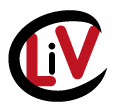Symposium: 13th January
Workshop: 11-13th January
University of Oxford, Maison Française
Special Guest: Catherine Hargreaves, Ecole Nationale Supérieure
des Arts et Techniques du Théâtre, Lyon
The symposium will take place after a three-day practical workshop run by director, actor and translator Catherine Hargreaves, professor at ENSATT, France. Speakers are invited to register for the workshop in addition to the symposium if they wish (see description below).
Call for Papers
While the domestication of cultural references is often seen as crucial in theatre translation, pursuing efficacy in speeches is just as important: the translator needs to have an ear for the potential performance of the text and its ‘speakability’. The demands of the stage tend to cut short the ethical debates on the positioning of translation between source and target text, and justify the choice for adaptation rather than translation. Over the past decades, translators and critics have defended the need to test translations on the stage, and the cooperation between the different agents of the theatrical project – in other words, the interdependence between translation, adaptation and interpretation. Collaborative translation benefits the actor by alleviating their verbal obstacles (Johnston 2004), and the director by assisting them in the interpretation of the text, as well as its reception, favouring the clarity and credibility of the text (Peghinelli 2012).
Sometimes collaborative translation also benefits the translators themselves, as it elevates their subaltern status and gives them visibility (Fernandes 2010); or benefits the source text, as it helps to retain the effects produced by the original (Zatlin 2005). This practice also benefits theatre translation as a discipline, as it can open up several avenues of research. For example, because the idiom generally aspires to embrace the target culture’s sociolect in a given time and to be as efficient as possible, studying the history of all available translations prepared for performance of a particular play could bring some insights into the evolution of language usage and the norms of theatrical efficacy. Just as the practice and the study of stage-oriented translations have entailed the emergence of theatre anthropology as an almost autonomous area of research, such historical study has the potential to open up to theatre sociolinguistics as a new subfield of the discipline.
This study day may also focus on the flaws of collaborative translation, and aims to foster debate on the practice. First, collaborative translation relies heavily on the notions of ‘speakability’ and ‘performability’, which are still under-conceptualised and sometimes controversial. Second, the necessity and the legitimacy of collaborative translation and naturalistic-driven theatrical writings can legitimately be criticised.
While case studies are welcome, we will favour proposals that particularly contribute to the theoretical reflection on collaborative translation. Papers should not exceed 20 minutes and suggested themes are as follows (although this list is not prescriptive):
– Mechanisms and purpose of collective translation
– Politics of rehearsals: power struggle and visibility of the translator
– Collective translation and commercial theatre
– Ethical considerations
– Social sciences: sociolinguistics, historiography, anthropology, rehearsal ethnography
– Defining, pursuing or rejecting ‘speakability’
Please send your abstract or any questions to cedric.ploix@st-hughs.ox.ac.uk by 15th October 2017. The committee will review the abstracts in the following week.
The symposium will end with an open workshop in which speakers will be given the opportunity to join for free or to attend (knowledge of French not essential for this workshop), followed by a round table.
Workshop
The workshop will explore the relationship between language and acting. How can the use of different languages influence an actor’s presence, develop his practical skills and sensitivities and modify meaning? What happens on stage when a same scene is played in different languages? Or in several languages at the same time?
After a series of exercises, designed to reveal how the rhythm and sound of a given language carry the history and cultural background of a society, the participants (theatre practitioners and literature students) will work on performing English and French versions of the same scenes and on improvisations linked to multilingual devised theatre. Time will be spent on analyzing the different performances and figuring out together if the stage can and/or should influence the translation of a play. The authors and translators of the plays will be invited to join the workshop.
The scenes will be taken from English and French contemporary plays. Knowledge of French is required to participate, but no theatre experience is required.
Lunches will be provided.
Registration for the workshop (11th-13th January, 10am – 4pm): £30 (£15 for students).
Registration for the symposium: (13th January): £20 (£10 for students)
